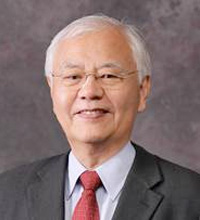Chinese business families are facing generational transitions, often subject to the curse of “wealth does not go beyond three generations.” In many of these entrepreneurial families, the business itself is a means to keep the entire family together. As the business leadership is passed down from one generation to the next or as the family exits from the business, the family may lose its purpose for staying and working together. The evolving dynamics demand actions to preserve family harmony and unity, values deeply seated in the Chinese culture. While a family office is itself a Western concept, with necessary adaptations, it may help serve as the “glue” and regenerate the shared identity for Chinese families.
The Three Preservations
After interviewing several first-generation wealth creators in Asia, principally in regions influenced by Chinese culture and traditions, we discovered that these wealth creators typically seek to achieve three “preservations.” The first, and most obvious, is wealth preservation. These wealth creators want the financial capital they create to be preserved so that it can be enjoyed by future generations. The second is legacy preservation – they seek to preserve the family name along with its values and social capital. The third preservation involves maintaining family harmony and unity. These wealth creators want their families to stay united and cohesive – to stay connected through positive relationships and by avoiding destructive family conflicts.
While the preservation of both wealth and legacy are common dreams for wealth creators in both the East and the West, the preservation of family harmony and unity is perhaps more stressed in Eastern families. In Chinese culture the most important values are based on Confucianism. The family is perceived as being more important than the individual. That Chinese families value tradition and filial piety – respect for one’s elders and ancestors – is extremely important. The typical family culture tends to be hierarchical and leadership is often patriarchal. To a Chinese family, the term “harmony” implies there is a natural, structured order to things; this includes family relationships. Harmony also implies preserving balance: direct confrontations tend to be avoided, and maintaining “face” – essentially the prestige, honor or social standing – especially of one’s seniors, is critical.
“Three Generation Curse” and Family Harmony and Unity
Despite the fact that family harmony and unity are clearly central elements of the Chinese culture, generally it is difficult to preserve family unity over the long-term. There is an old Chinese proverb, often interpreted as a kind of “curse,” which states that “wealth does not pass beyond three generations.” Similar sayings appear in other cultures as well: “rags to riches to rags,” and “shirtsleeves to shirtsleeves in three generations.” However, history illustrates that Chinese family businesses appear to be particularly influenced by this “curse.”
One of the reasons for this “three generation curse” is the equal inheritance system. While Chinese families are hierarchical, with the older siblings typically having more authority than the younger ones, by tradition, each male heir is usually entitled to inherit an equal share of his father’s estate. Consequently, in each subsequent generation, the ownership of family wealth becomes increasingly fragmented. If sibling relationships are not harmonious at the time of their father’s passing, this equal division of assets leads to a higher possibility of future family disputes and a greater chance that the “three preservations” dream will not be realized.
The Evolving “Glue” Across Generations
This situation leads us to our central question: what keeps families together in the long-term? Studies reveal a distinct pattern: when a group of family members own and manage a family business, during the first and second generations the business naturally forms a focal point for the family, offering members a unique career and keeping them working together. However, as the family matures, this situation changes: not all family members take up management roles in later generations; or the family may simply own, but not manage, the business. As their involvement in the business diminishes, the emotional attachment of these family members to the business may begin to fade. Conflicts may also become more frequent at this stage of ownership, particularly between family members in management roles and those family owners not in the business. At this point, the business may no longer serve as the “glue” that keeps the family together.
Family Office: The New Glue
We believe that a family office can become the “glue” in these tricky later generations. There are two types of family offices – single family offices (SFOs) and multi-family offices (MFOs). SFOs are entities formed by a single family – which can also include branches of the original family – that provide administrative and organizational support for the affairs of the family, both financial and non-financial. An MFO, in contrast, is an office which services several families and mainly focuses on managing wealth. For our purposes, we will concentrate on the concept of SFO providing support to a family, helping them achieve the “three preservations” and becoming the “glue” in later generations.
The family office is very much a Western concept. A formal family office is a standalone organization which is clearly separate from the family business and that can be managed by non-family professionals. As yet, this concept has not become popular in Asia, particularly so in the ethnic Chinese communities. A recent study by the Asian Family Office Association estimated that in 2012 there were about 3,000 and 1,000 family offices in America and Europe respectively, but only around 100 in Asia. Of these, most were located in Hong Kong and Singapore and none in mainland China. With more and more next generation members being educated in the West and going back to China, Western management concepts and philosophies are gradually accepted by young Chinese entrepreneurs. Quite a number of MFOs have been set up in recent years. However, SFOs are still very rare.
Challenges of Setting up a Chinese Family Office
One possible explanation for this situation is that Chinese family businesses are often still under the control of first-generation entrepreneurs who are accustomed to being the sole decision-maker and often do not see the need for a family office staffed by professionals. A second possible explanation is that Chinese families prefer to see family tasks delegated to family members rather than non-family professionals, as family affairs may be viewed as being too private to be handled by an outsider. Yet a third possible explanation is that setting up a formal family office costs money and requires a certain level of investable assets. Chinese families may prefer to save costs by using existing staff and resources of the operating business to resolve family issues.
Our research on large Chinese family firms that have survived for at least 100 years revealed one consistent success factor: maintaining a balance between Chinese and Western values. These family businesses adopt good Western management practices while preserving their Chinese traditions. Applying this success factor to the problem at hand, we suggest that Chinese families consider the Western concept of a family office, but modify the idea to create a better fit with Chinese culture. Advisors can be an important resource here, helping families adapt and embrace the concept in the Chinese way.
Advisors and Chinese Family Offices
Involving family members in family offices is one possible modification. As mentioned, in the later generations, not all family members are actually involved in the business. If family members are suited to managing particular family office functions, they should be actively considered. This involvement can allow family unity and harmony to be preserved, as well as greatly reduce the costs of maintaining a team of external professionals in SFOs. Advisors should help families outline the human capital needs of their own family offices, evaluate potentials of possible family candidates, and seek families’ consideration of outside professionals, if necessary.
Preserving family wealth is a highly sensitive issue for Chinese families. As such, in a Chinese family office, the ideal scenario would be to have a family member make decisions about family wealth in the usual manner. However, if family members lack the necessary skills in this area, a professional from outside the family should be involved. The most qualified family member can still act as the overseer of the wealth management process. Advisors should encourage family education that is necessary for a responsible family wealth manager or family wealth overseer working with non-family professionals.
Family offices can help preserve family harmony and legacy through the management of charitable and philanthropic activities. Family members can contribute their different expertise in philanthropic activities, regardless of their age or position. They can also be involved in the family philanthropy board and take up a management role in the family’s charitable foundations. Advisors should help families see their diversity as a resource in family philanthropy, facilitate plans for wider family engagement and present this as an educational opportunity for the next generation.
Family offices can provide a broad range of support functions for family governance, including arranging family meetings and family assemblies and developing a written family constitution. Family offices can also support education planning for family members, travel arrangements, family gatherings and much more. Again, family members can participate in decisions related to these activities. Advisors should help families set their own priorities for functions needed, develop steps to gradually launch these functions, coordinate family engagement in the initial setup, collect and act on the feedback from the family. As the structure matures, advisors may help locate external help as appropriate.
Due to the “one-child policy” in 1980-2015 in mainland China, there is a higher tendency for the wealth creators to sell out the business if they cannot find a suitable successor within the family. Regardless of whether the business is sold out or not, family offices can help keep family members together by actively involving them in non-business aspects. Advisors have to understand the cultural differences, keep the three “preservations” in mind, and help families adapt and embrace the concept of family office following their own needs. In this way, family offices can act as the “glue” that keeps families together for generations to come.
About the contributors
 Roger King is adjunct professor of finance and founding and current director of the Thompson Center for Business Case Studies and the Tanoto Center for Asian Family Business and Entrepreneurship Studies at the Hong Kong University of Science and Technology. He can be reached at rking@ust.hk.
Roger King is adjunct professor of finance and founding and current director of the Thompson Center for Business Case Studies and the Tanoto Center for Asian Family Business and Entrepreneurship Studies at the Hong Kong University of Science and Technology. He can be reached at rking@ust.hk.
 Winnie Qian Peng is adjunct assistant professor of finance and associate director of the Thompson Center for Business Case Studies and the Tanoto Center for Asian Family Business and Entrepreneurship Studies at the Hong Kong University of Science and Technology. She can be reached at pengg@ust.hk.
Winnie Qian Peng is adjunct assistant professor of finance and associate director of the Thompson Center for Business Case Studies and the Tanoto Center for Asian Family Business and Entrepreneurship Studies at the Hong Kong University of Science and Technology. She can be reached at pengg@ust.hk.
 Christian Stewart is the managing director of Hong Kong-based consulting firm Family Legacy Asia (HK) Limited. He is also an associate of the US-based consultancy firm Wise Counsel Research Associates. Christian assists families around Asia with family governance and succession and can be reached at cstewart@familylegacyasia.com.
Christian Stewart is the managing director of Hong Kong-based consulting firm Family Legacy Asia (HK) Limited. He is also an associate of the US-based consultancy firm Wise Counsel Research Associates. Christian assists families around Asia with family governance and succession and can be reached at cstewart@familylegacyasia.com.





